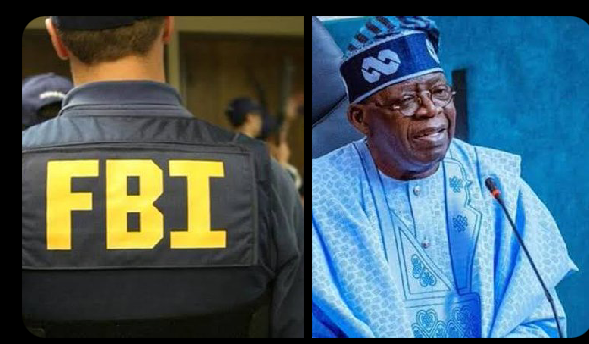US Court Orders FBI To Release Records On Nigerian President Tinubu.
A United States District Court in Washington, D.C. has ordered the Federal Bureau of Investigation (FBI) and the Drug Enforcement Administration (DEA) to disclose records related to a 1990s investigation involving Nigerian President Bola Tinubu. The ruling, delivered by Judge Beryl Howell, marks a pivotal moment in a long-running legal battle over transparency concerning the Nigerian leader’s past.

The court’s decision comes after years of requests for information, primarily driven by Nigerian journalist David Hundeyin and anti-corruption campaigner Aaron Greenspan, who sought access to documents under the U.S. Freedom of Information Act (FOIA). The records in question are believed to pertain to a 1993 case in which Tinubu forfeited $460,000 to the U.S. government, allegedly linked to narcotics trafficking proceeds. The ruling has sparked widespread interest in Nigeria and beyond, given Tinubu’s prominent role as the leader of Africa’s most populous nation.
Judge Howell criticised the FBI and DEA for their use of “Glomar responses,” a legal tactic in which agencies neither confirm nor deny the existence of records. She described their justification as “neither logical nor plausible,” ordering the agencies to lift these restrictions and release relevant documents. However, the Central Intelligence Agency (CIA) was exempted from the ruling, as the court found insufficient evidence to compel disclosure of its records.
The case has been a subject of intense debate, with some alleging that the records could shed light on decades-old controversies surrounding Tinubu’s background, including questions about his activities in the U.S. during the 1990s. Tinubu, who served as governor of Lagos State from 1999 to 2007 before ascending to the presidency in 2023, has consistently denied any wrongdoing. His supporters argue that the push for disclosure is politically motivated, aimed at tarnishing his reputation.
“This ruling is a victory for transparency,” said Hundeyin in a statement posted on social media. “The public has a right to know the truth about their leaders, and we will continue to pursue accountability.” Meanwhile, Tinubu’s media aide, Bayo Onanuga, dismissed the development as “another attempt to recycle baseless allegations,” urging Nigerians to focus on the president’s ongoing economic reforms.
The release of the records, expected to begin in batches, could have far-reaching implications for Tinubu’s presidency, particularly as Nigeria grapples with economic challenges and political unrest. Analysts suggest that the documents may either vindicate the president or fuel further scrutiny, depending on their contents.
The Nigerian government has yet to issue an official response to the ruling. As the world awaits the release of the documents, the case underscores the delicate balance between national security, personal privacy, and the public’s right to information.


